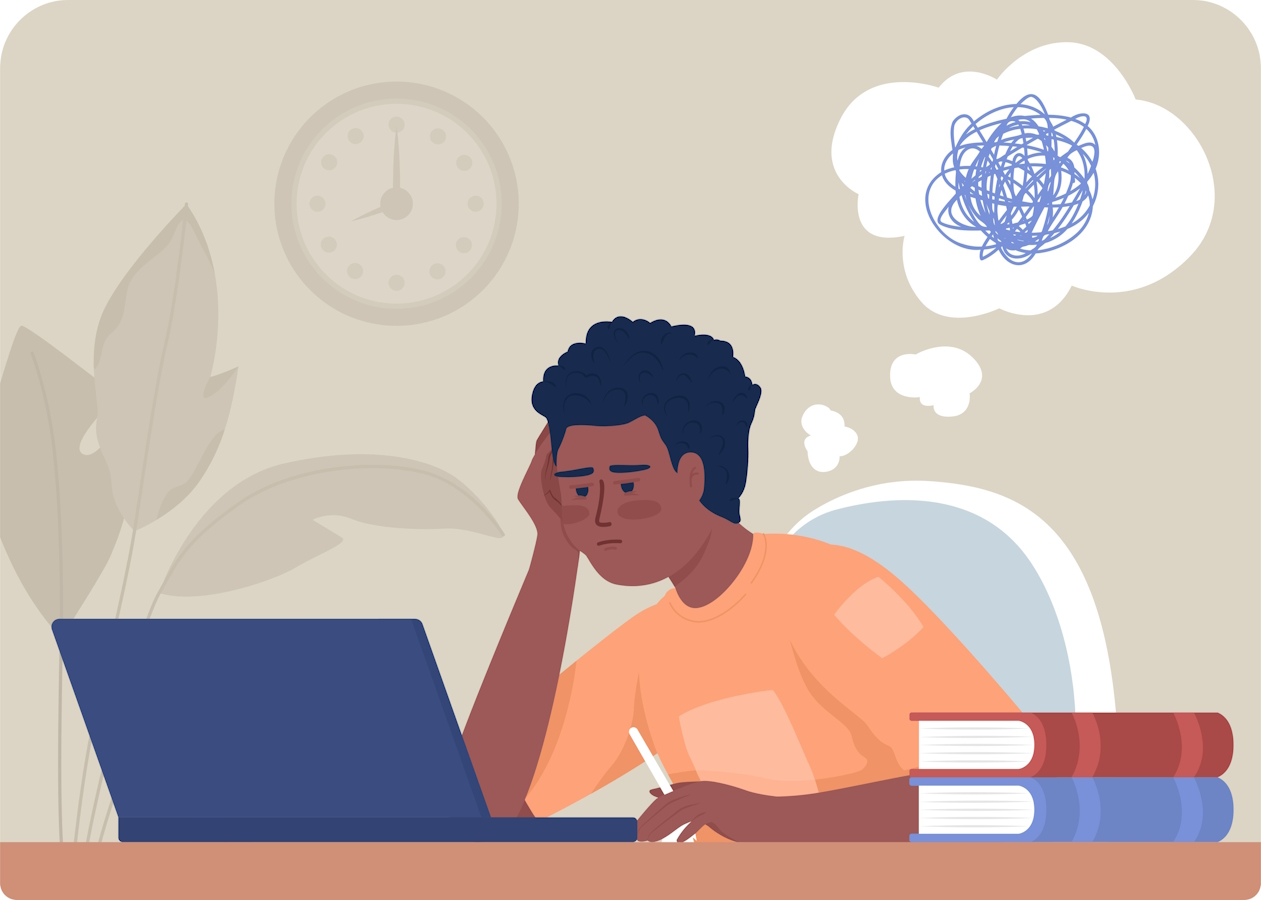Not all relationships are made equal. Of course, there are different types of relationships, such as platonic relationships of various sorts between friends, colleagues, neighbors, parents, and their children and siblings. There are also romantic relationships, which differ in terms of the level of commitment between the two people, such as couples that just started dating, and spouses who’ve been together for a few decades.
Apart from this basic difference between romantic and platonic relationships, there is another fundamental difference that exists between all types of relationships. Some relationships are healthy, while others are unhealthy to varying degrees. A relationship can be unhealthy for many different reasons, and whether a relationship is healthy can affect your own well-being. Identifying and being able to fix an unhealthy relationship is thus important.
Identifying An Unhealthy Or Toxic Relationship
If a relationship is toxic, there are a few tell-tale signs. Knowing these signs is important because if you’re in a relationship, you can be so accustomed to things being a certain way that you normalize them and don’t see just how bad they are. Sometimes you need someone outside the situation to remind you or let you know that you’re the frog in the kettle and you’re slowly being boiled alive.
An unhealthy or toxic relationship may be marked by some of the following characteristics. It’s important to remember that every relationship will have its issues. Sometimes those issues crop up at specific moments, or they may be connected with particular seasons like when one partner loses their job and is under immense stress. Every relationship has areas that need improvement, but an unhealthy relationship has consistently negative patterns.
Some identifying marks of a toxic relationship include the following:
Anger issues If one or both people in a relationship have anger issues, that is a sign of a toxic relationship. Anger issues are when someone can’t process or express their anger well. It can look like suppressing anger, being passive-aggressive through silent treatment, or exploding and shouting or punching a wall. If a relationship is typified by unexpressed or ill-expressed anger, it’s likely a toxic dynamic.
Manipulation and gaslighting People are precious because they’re made in God’s image. They have minds of their own, and that can be hard to handle. Some people try to control others, whether by manipulating their emotions or by isolating, breaking them down and making them doubt their own minds or judgment.
 Dishonesty What helps a relationship to thrive is vulnerability and being able to be yourself with the people in your life. If dishonesty is a staple in the relationship, whether about small things or significant issues, that means there’s a lack of vulnerability, and intimacy in the relationship will likely suffer. If you can’t be yourself with that person, that’s a serious issue.
Dishonesty What helps a relationship to thrive is vulnerability and being able to be yourself with the people in your life. If dishonesty is a staple in the relationship, whether about small things or significant issues, that means there’s a lack of vulnerability, and intimacy in the relationship will likely suffer. If you can’t be yourself with that person, that’s a serious issue.
Codependent dynamics A relationship is supposed to be a two-way street with both parties being concerned for their mutual well-being and trying to meet each other’s needs. In a codependent relationship, there’s an imbalance where one is always giving and the other receiving, and the needs of the one are neglected while the other’s needs are prioritized.
Emotional abuse Treating someone with less than the dignity they deserve, whether in words or actions, can cause them harm. In addition to manipulation and gaslighting, emotional abuse can also look like constant criticism, neglect, ignoring the other person’s needs, humiliating the other person, making jokes at their expense, or calling them names. These and other behaviors are harmful and indicative of a toxic relationship.
Competition and jealousy There is such a thing as healthy competition, but if it saps affection and mutual regard from the relationship, that’s a problem. People’s successes should be celebrated heartily, and a relationship isn’t the arena for begrudging acknowledgment or jealousy over the other’s accomplishments. Some relationships might even have one or both people sabotaging the other’s success.
A hive mind In a relationship, each person still has their opinion, needs, desires, and so on. If the relationship functions more like a hive mind, with contrary thoughts not being welcomed or acknowledged, or with pressure being exerted for one to conform to certain opinions, that’s a problematic dynamic. If one person can’t question the other and is expected to trust them implicitly, that might not be healthy.
Constant conflict and poor communication Relationships thrive or wither based on how good the communication is. Poor communication leads to needs not being known or met adequately, and they can also lead to conflict. If a relationship is marked by poor communication and constant conflict (about the same or other things) that never quite seems to get resolved, that can signal a toxic relationship.
Violated boundaries Every person has boundaries that demarcate where they end and where another person begins. A person may have physical, emotional, and mental boundaries, such as not wanting to be spoken to disrespectfully, or not wanting to be touched in certain ways. If the boundaries of one or both people in the relationship are constantly being violated, that’s a sign of an unhealthy relationship.
An unsafe space If you’re in a healthy relationship, you look forward to being with the other person. Unhealthy relationships tend to be draining and they feel unsafe to be in. That lack of safety might be physical safety, as in the case of abusive relationships. It can also be an emotionally unsafe space; one where you hesitate to share your thoughts or feelings for fear of ridicule, or it being used against you.
In these and other ways, a relationship can be toxic. A toxic relationship can end up breaking a person down because it attacks their well-being and confidence. If a person is exposed to unhealthy behaviors for a significant period, it can make them more anxious, and more susceptible to depression, and it erodes a person’s sense of self-worth. Unhealthy relationships also undermine your happiness and your energy levels.
How to Fix a Toxic Relationship
The patterns in a toxic relationship can become deeply ingrained and part of how two people relate to each other. It can become part of normal life to be constantly subjected to criticism, for your needs to be ignored, to be exposed to unbridled anger, and to not get any support from the people closest to you. If we thrive when our relationships are healthy, it’s also true that we struggle when our relationships are unhealthy.
A toxic relationship can be fixed, but it’s important to remember that we are often prone to inertia – we tend to carry on down the path we’re on unless we decisively shift things. This means that unless you put a concerted effort into changing things, you can’t expect them to change on their own. Fixing a toxic relationship requires the input and presence of both people – it can’t be a one-sided affair, or the effort is unlikely to succeed.
To fix a toxic relationship, here are some pointers:
Face the situation Recognize and name the toxic elements or dynamics in your relationship. Until you face up to what’s really going on in your relationship, you’re likely to carry on as usual.
Talk openly It’s important that you honestly share your concerns with the other person so that you know what’s going on. Using your “I” statements instead of “You” statements, communicate what you feel and need.
Set boundaries Establish clear limits and consequences for crossing those limits. Boundaries help you to protect yourself from abuse and harm.
Take responsibility and accountability It’s important for both parties to be responsible for their own actions and take steps to remedy the harm caused.
Consider a temporary separation Some relationships cause more harm than good, and it may be necessary to separate to reflect on the relationship and heal. Whether that separation is temporary or not will depend on factors such as whether there is danger, as well as if change happens and the dynamics in the relationship shift.
Seek help You can work with a mental health professional to address the issues in the relationship, equalize the power dynamics in the relationship, set healthy boundaries, and to get guidance in how to proceed with the relationship. Fixing a toxic relationship requires both parties to commit and put effort into changing things. Reach out to our office to speak to a therapist and get the help you need to restore your relationship.
Photos:
“Red flower field”, Courtesy of Katie, Unsplash.com, CC0 License
- Jennifer Kooshian: Editor
Jennifer Kooshian lives in the Upper Peninsula of Michigan with her husband of 32 years on a small homestead near Lake Superior. They have five adult children and one grandson. She also has an ever-changing number of chickens, a mellow old cat, and a...
DISCLAIMER: THIS ARTICLE DOES NOT PROVIDE MEDICAL ADVICE
Articles are intended for informational purposes only and do not constitute medical advice; the content is not intended to be a substitute for professional medical advice, diagnosis, or treatment. All opinions expressed by authors and quoted sources are their own and do not necessarily reflect the opinions of the editors, publishers or editorial boards of Stone Oak Christian Counseling. This website does not recommend or endorse any specific tests, physicians, products, procedures, opinions, or other information that may be mentioned on the Site. Reliance on any information provided by this website is solely at your own risk.





